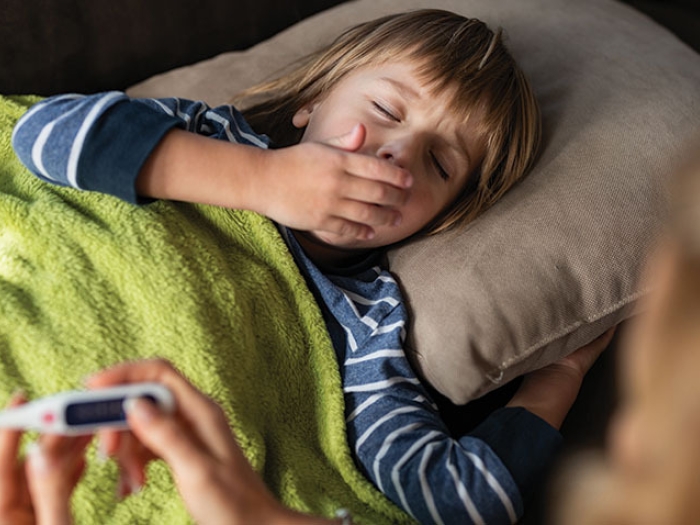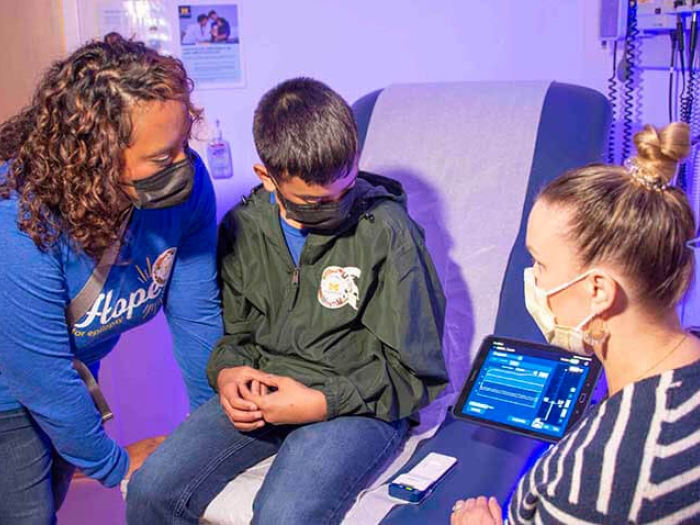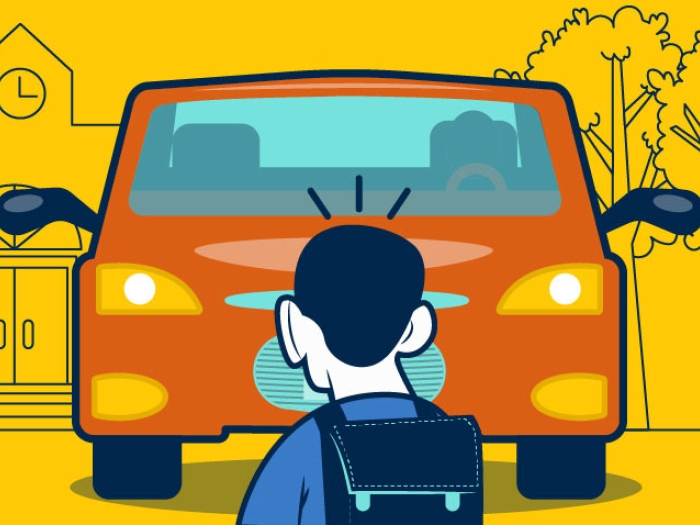In response to concerns over sleep debt among teens, the medical community is calling on middle schools and high schools to start at 8:30 or later.
1:00 PM
Author |

Many teens wish they could get a few more hits on the snooze button — and now doctors agree that extra time in bed would be better for their health.
SEE ALSO: How Dads Can Cope When a Child Is Sick
The American Medical Association recently released a policy encouraging all middle and high schools to start school at 8:30 a.m. or later in response to concern over chronic sleep deprivation among U.S. teens. Research shows more sleep can improve adolescents' physical and mental health, reducing the risk of obesity and depression, among other benefits.
Hundreds of school districts across at least 44 states have already made the change. Some communities have even made national news over the issue, with parents and teens in Maryland going so far as to stage a "sleep-in" protest in pajamas outside a school board meeting last year.
Ellen Selkie, M.D., an adolescent medicine doctor at C.S. Mott Children's Hospital, explains why later school start times have become a growing trend, and why the change has overwhelming support among doctors.
How much sleep do teens really need?
Selkie: Sleep is a restorative process that helps the body repair itself from the stresses of daily life. We know babies need the most sleep, but sometimes forget that adolescents' brains and bodies are still developing, too. Once they hit puberty, they need eight to 10 hours of sleep, but just over a third of American teens say they are getting at least eight hours on an average school night. Most get less than seven. What I see in clinic and what research has shown is that teens are chronically sleep deprived. There's no question about it. It is a growing public health issue.
Why aren't teens getting enough sleep?
Selkie: Teens are biologically wired to have later sleep cycles. We don't know why, but the hormone that signals our brain to sleep (melatonin) is secreted later in the evening for teens. It's not uncommon for teens not to get sleepy until 11 p.m. or midnight. But over the past several decades, school start times have become earlier to accommodate more classes, sports and extracurricular activities. Teens are staying awake later to do homework and manage outside activities — not to mention the increasing distractions of phones and other mobile technology that may keep them up.
How does sleep deprivation impact teens?
Selkie: Research shows that teens who don't get enough sleep are at a higher risk for depression, anxiety and problems with school performance. We also know that lack of sleep may contribute to obesity, not only because teens are too tired to be physically active, but also because being sleep deprived actually causes changes in hormone levels that regulate hunger. Sleep deprivation can also increase the risks of falling asleep while driving for teen drivers, who are already more likely to be in a car accident as it is.
A lot of teens sleep in on the weekends. Can't they catch up?
Selkie: It's impossible to make up all the sleep debt from the week. If teens are just getting six hours of sleep a night and they're supposed to get nine, that's 15 hours that they've missed out on — there's no way to make up for the lost time. A dramatic change in wake times on the weekends also disrupts the sleep-wake cycle, making it even harder to get up on Monday morning.
More districts are pushing back start times. What can we learn from them?
Selkie: Studies done in communities that have implemented school times after 8:30 show that it does make a big difference. Teens don't tend to stay up later just because school starts later, so they are truly getting better sleep. Teens in these districts have lower reported rates of depression and mood symptoms and improved concentration that may help them in school or even sport performance.
What are the greatest obstacles to making the change?
Selkie: Some of the most common arguments are issues with transportation and impact on after-school activities, like sports and jobs. A 2015 report from the C.S. Mott Children's Hospital National Poll on Children's Health found that parents are split on delayed start times — many agreed that this would allow their teens more sleep and improve school performance, but there was also legitimate concern over how the switch would affect schedules and logistics.
Ultimately, any major changes like this won't come without some pushback from schools, parents and even teenagers themselves. But when a community decides that these changes are important to improve the health and success of their young people, they work together to find solutions. Those leading the effort will make sure families are educated about the benefits and why overcoming barriers is worth the challenge. Schools districts that have made this change have gotten creative by altering bus schedules and sport practice times, for example. Hopefully, as more schools prove that this is a feasible feat and we see more evidence of the significant health benefits, there will be a snowball effect.
In the meantime, how can families improve sleep quality among teens?
Selkie: Sleep hygiene is very important for this population. Some basic moves I recommend for every teen:
- No technology in the bedroom, period. Checking phones, watching TV or scrolling through an iPad at bedtime can significantly disrupt the amount and quality of sleep you get.
- Maintain as similar a schedule as possible on the weekend. A couple of extra hours of sleep is fine but more than that disrupts the sleep-wake cycle, making the following school week even more tiring
- No naps after school. Naps may mean more sleep short term but it makes it harder to fall asleep at night and breaks up sleep, which means lower quality of sleep and fewer benefits. If this is a habit, do everything you can to break it for one week. You will likely find it easier to not nap and go to bed earlier going forward.
- Minimize the use of caffeine as a crutch. No caffeine drinks or energy drinks after 1 p.m.
- Consult an expert: If you are doing everything you can to get better sleep but suffer from snoring, restlessness or still wake up feeling lethargic, ask your doctor about getting evaluated for a possible sleep disorder.

Explore a variety of healthcare news & stories by visiting the Health Lab home page for more articles.

Department of Communication at Michigan Medicine
Want top health & research news weekly? Sign up for Health Lab’s newsletters today!





